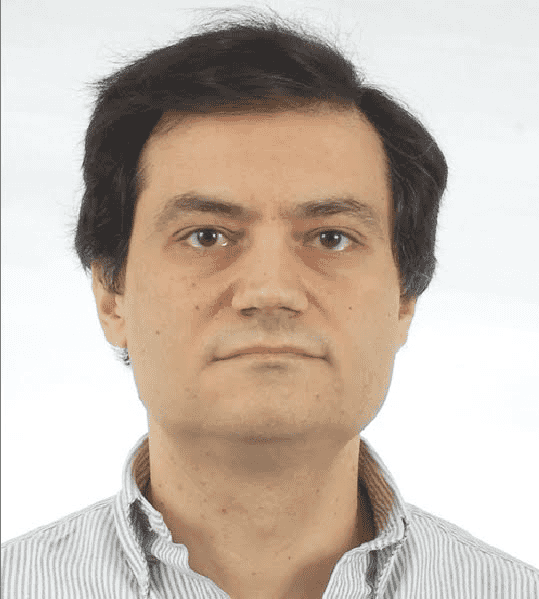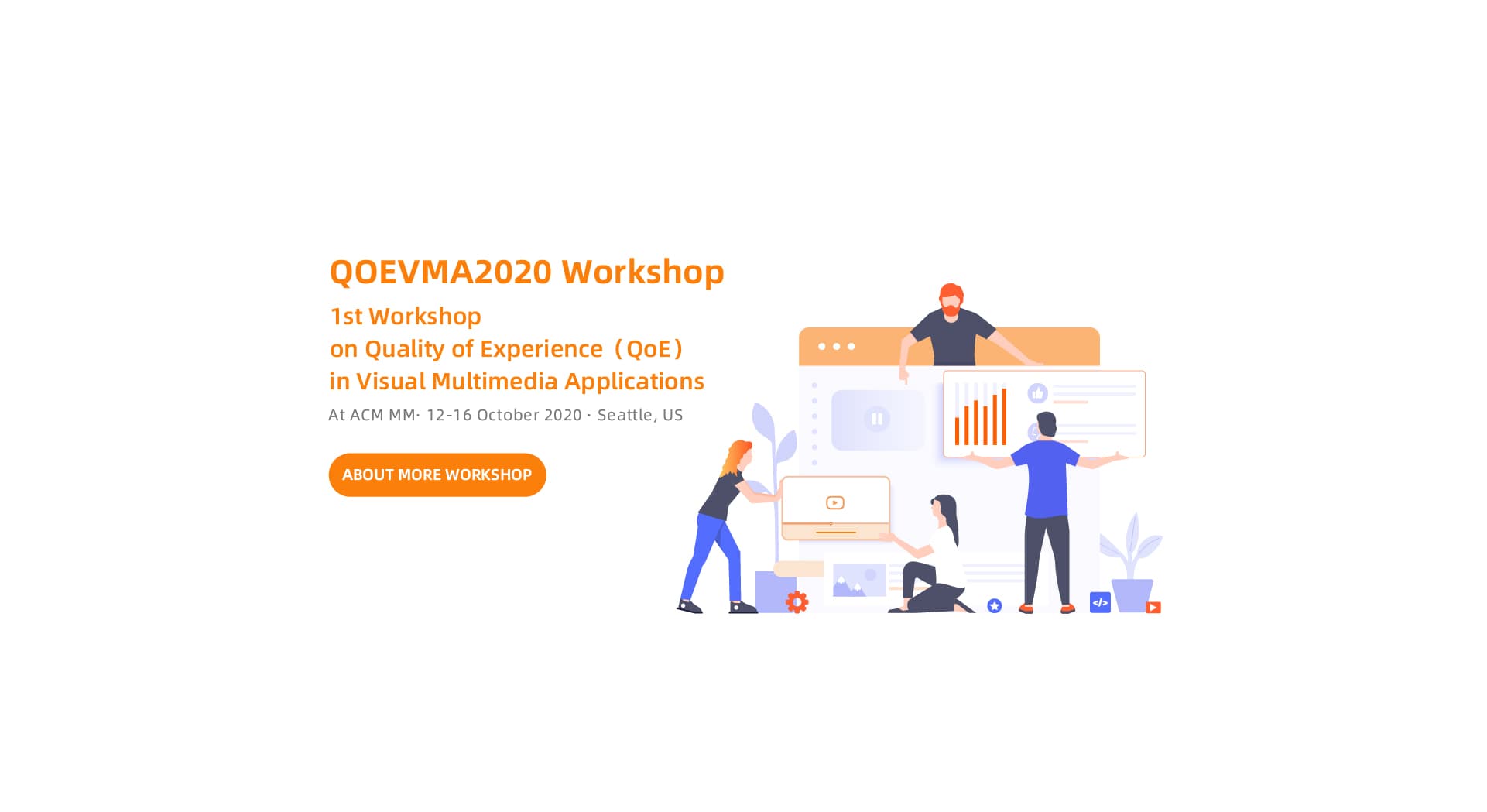Acceptance Notification: Friday, July 31 2020 August 26, 2020 (PST)
Camera Ready Submission: Friday, August 7 2020 September 2, 2020 (PST)
Workshop Date: 12 or 16 October 2020 (to be decided)
Please refer to the submission site (https://2020.acmmm.org/call-for-paper.html) for submission policies.
Please submit your paper via https://cmt3.research.microsoft.com/MMW2020 . You will have to choose "1st Workshop On Quality of Experience (QoE) in Visual Multimedia Applications" as your track. Submissions can be of varying length from 4 to 8 pages, plus additional pages for the reference pages; i.e., the reference page(s) are not counted to the page limit of 4 to 8 pages. There is no distinction between long and short papers, but the authors may themselves decide on the appropriate length of the paper. All papers will undergo the same review process and review period.
Please feel free to send an email to Dr. Jing LI (lj225205@alibaba-inc.com) if you have any questions relating to the workshop.
Due to the current worldwide COVID-19 pandemic, QoEVMA'20 will be an all-online workshop, which will be held on 16 October. Please note that the workshop schedule follows the Eastern Standard Time (EST).
The keynote sessions will be a single track session, and all will be running as live meetings (Zoom webinar). Each accepted paper will have a pre-recorded video presentation (around 15 min), which will be accessed on demand during the conference period. The time slots allocated to accepted papers are only for live Q&A, not traditional paper presentations.
| Time slot (EST) | Session |
| 8:00 am - 9:00 am | Keynote session 1 (Live session): QoE and Immersive Media: A New Challenge (Federica Battisti, University of Padova) |
| 9:00 am - 10:00 am | Q & A session 1: |
| Towards Better Quality Assessment of High-Quality Videos (Suiyi Ling, CAPACITÉS SAS; Yoann Baveye, CAPACITÉS SAS; Deepthi Nandakumar, Amazon Video; Sriram Sethuraman, Amazon Video; Patrick Le Callet, University of Nantes) | |
| VMP360: Adaptive 360° Video Streaming Based on Optical Flow Estimated QoE (Yuxuan Pan, Xikang Jiang, Wei Quan, Lin Zhang, Beijing University of Posts and Telecommunications) | |
| Improving the efficiency of QoE crowdtesting (Ricky K. P. Mok, CAIDA/UC San Diego; Ginga Kawaguti, NTT) | |
| 10:00 am - 11:00 am | Keynote session 2 (Live session): Do we Really Need No-reference Video Quality Metrics? (Ioannis Katsavounidis, Facebook) |
| 11:00 am - 12:00 am | Q & A session 2: |
| Perceptual Characterization of 3D Graphical Contents based on Attention Complexity Measures (Mona Abid, Matthieu Perreira Da Silva, Patrick Le Callet, University of Nantes) | |
| Performance Measurements on a Cloud VR Gaming Platform (Yen-Chun Li, Chia-Hsin Hsu, Yu-Chun Lin, Cheng-Hsin Hsu, National Tsing-Hua University) | |
| A Subjective Study of Multi-Dimensional Aesthetic Assessment for Mobile Game Image (Suiyi Ling, CAPACITÉS SAS; Junle Wang, Tencent; Wenming Huang, Tencent; Yundi Guo, Tencent; Like Zhang, Tencent; Yanqing Jing, Tencent; Patrick Le Callet, University of Nantes) |
 |
Federica Battisti, Assistant Professor, University of Padova, Padua, Italy Federica Battisti is an Assistant Professor in the Department of Information Engineering at University of Padova, Padua, Italy. She received the Laurea (Master of Science) in Electronic Engineering from Università degli Studi Roma Tre, Rome, Italy, in July 2006 and in March 2010 she received the Ph.D. degree with a thesis titled “Multimedia data hiding based on human perception characteristics”. Her main research interests are signal and image processing with a focus on the subjective quality analysis of multimedia. She is IEEE Senior member, and she serves as Associate Editor of IEEE Transactions on Multimedia, of EURASIP Journal on Image and Video Processing, and of ELSEVIER Signal Processing: Image Communication. She is member of the IEEE Multimedia Signal Processing Technical Committee, of the EURASIP Visual Information Processing Technical Area Committee, of the VQEG Immersive Media Group, she contributes to the IEEE P3333.1 Human Factors for Visual Experiences Working Group. |
 |
Ioannis Katsavounidis, Research Scientist – Video Infrastructure – Facebook, Menlo Park, CA, USA /Dr. Ioannis Katsavounidis is a member of the Video Processing group, part of the Video Infrastructure team, leading technical efforts in improving video quality across all video products at Facebook. Before joining Facebook, he spent 3.5 years at Netflix, contributing to the development and popularization of VMAF, Netflix's video quality metric, as well as inventing the Dynamic Optimizer, a shot-based video quality optimization framework that brought significant bitrate savings across the whole streaming spectrum. Before that, he was a professor for 8 years at the University of Thessaly's Electrical Engineering Department in Greece, teaching video compression, signal processing and information theory. His work experience includes a year in China as co-founder and CTO of Cidana, a mobile multimedia software company, 7 years as director of software at InterVideo and 4 years in Italy working for an underground high-energy Physics experiment. He has over 100 publications and patents in the general field of video coding, but also high energy experimental physics. His research interests lie in video coding, video quality, adaptive streaming and hardware/software partitioning of multimedia processing, with particular emphasis on energy efficiency. |
